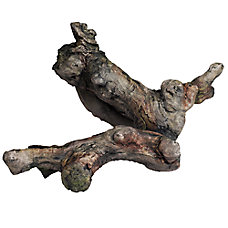Name: qmau
Location: sit's apartment
Posts: 382
Location: sit's apartment
Posts: 382
Fanhood. Fannitude. Fanity. Fanaticism?
What does it mean to be a fan?
Dictionary.com describes a fan as:
an enthusiastic devotee, follower, or admirer of a sport, pastime, celebrity, etc.
There have been times that I have been a fan. I was in it to win it with the Angels for the 2002 MLB World Series. At that point, I'd been a fan of the team since my baseball card collecting days, right around the age of 8, when Jim Abbott, the one-handed pitcher for the then-California Angels, was an even bigger inspiration to me than other then-current sports stars such as Michael Jordan, Bo Jackson, and others. His style was 100% unique, he was legitimately skilled, and he represented a great capacity for success, even when given unfavorable circumstances. Here's a video of a no-hitter he pitched while playing for the New York yankees.
I distinctly remembering an Angels playoff game, right around the age of 8 years old, where it seemed to me that everything was on the line; not just for the Angels, but also for me. I was bundled under the gaudy comforter of my mom's humongous bed, eyes firmly affixed to the 12 mile thick glass of the blindingly bright high definition visual broadcast of my mother's thirty-something inches Zenith television. I was watching the game in style. The Angels lost, which was something they did a lot of in the 90s, and I can recall, vividly (and fictitiously melodramatically), a single warm tear descending the uncragged surface of my baby-face. The breeze from the fan overhead chilled its trail to a freezing temperature that surely matched that of my heart.
I look back on that moment as the epitome of the absurdity of fanhood. A child, alone, driven to forced tears by the loss of a sports team, as if, somehow, such an expression of sadness could legitimize the outward projection of belonging to the concept of some arbitrarily defined social entity, fans of the California Angels. I was proving to some unseen observer that I was invested, that I cared, and that I was capable of tears and sadness if I didn't get what I wanted.
Since that moment, the most intense moment of fanatical expression I can recall in my life, I have experienced different elevations of my fanhood. I have subscribed to information, created links to products on web sites I maintain, searched for and downloaded the entire careers of MMA fighters (and then encouraged others to pay attention to my opinion about them), posted forum threads on ESR about input device manufacturers that please and displease me, and so on.
With fanhood in general, I found that some internal emotional attachment to a perceived external entity lead to the experience of undesirable feelings that weren't worth the experience of desired feelings. I am not quite spiritually prepared for a life of delusionally convincing myself that the undesirable experiences weren't legitimate, or of forcing myself to cover those undesirable experiences by focusing my attention as a fan on more positive experiences, the schadenfreudian satisfaction of other fans' suffering due to their objects of affection being the source of their negative experiences, some invented alternate reality that I refuse to allow others to contest with reason or rationality, or some other form of masking. I make a conscious effort to check my fanhood regularly, and to develop methods by which I can terminate such fanhood when the risk of disappointment begins to arise.
I have a casual experience of id Software games, starting with Wolfenstein 3D, which a friend showed me on his dad's computer around 20 years ago. It was fun in the same way as playing tag with other kids is fun, but I didn't find myself hooked or trapped. I had many other hobbies at the time, and at that point had neither a computer nor console gaming system at home to play. My next experience with an id Software game, at least that I can remember, came a year or two later, when I played Doom on the SNES. I was staying the night at a friend's house, and we had a good time, but the game was kind of boring and ugly. I wasn't a fan of Wolfenstein. I wasn't a fan of Doom. I still am not.
Three years later I moved to Lake Tahoe, California, and had the privilege of having access to what was then a decently modern computer lab. This was the height of Super Nintendo emulator development, and a very liberal network administrator (a guy named Chris, who was a great guy in general, and probably helped fuel many grades of cyber-curiosity), so at lunch you could find a group of kids playing various unreleased Japanese RPGs and MegaMan iterations, as well as around 5-10 playing Quake.
Quake was like Wolfenstein and Doom in the sense that you control a perspective that runs around some geometric configurations of simulated space to zap objects with his rocket gun and gather resources. Unlike Wolfenstein and Doom for the SNES, Quake had finer and more intuitive controls (+mlook), and other people to play against, which made the game competitively attractive. We had a T1 connection at the school, and so pinged decently to various Californian servers. The guy who taught me the basics of Quake suggested we play online, and asked me to join a server, kitty1.stanford.edu. At the time I had no clue what I was being granted access to, and unfortunately don't remember much of the experience, but this was a server that saw Deathrow players dueling in their primes.
I still wasn't a fan. I played casually at lunch at school, but didn't bother installing the game at home, where I preferred, for some reason, to play Quake 2, which had dial-up servers widely and easily available via Microsoft Zone. At this point, I still couldn't consider myself a gamer. I spent more time walking to the ski resort my mom worked at so I could hike up the mountain just to snowboard back down again. It wasn't until months later that I became a fan of my first gaming company and game, Blizzard and Starcraft.
I played a lot. I researched build orders for each race. I looked up news about the game. The only other games that I've done as much research and practice for are Counter-Strike and Counter-Strike: Global offensive, and that amount can be said to have been maybe slightly above average among other players in the times I was doing it.
The experience for me with previous Quake games is similar for Quake 3, and Quake 4 I didn't even play until 2015, and then on Xbox 360 (for less than two hours). I played a good summer of RA3, and didn't have a conception of item timing. I hadn't heard of the term, and didn't know about it until I began playing QuakeLive and was informed by the nefarious tyryl AKA kdawg AKA Randy Brown AKA Daryl. At that point, I was around 27-30 years old, and the concept of duel suddenly clicked. I started paying attention to duel tournaments. I learned half-beat strafe jumping. I practiced offline at high timescale against nightmare Tank Jr.s. I went to Quakecon 2010 with an ESR press pass. I talked to everybody who would listen. Prozac tried to troll me in his underwear. Some guy brought a 40" TV to the BYOC. I interviewed Syncerror and Steve Nix. I listened to the Brink developers describe how groundbreaking their game would be, and why it would be a huge success. I felt like a combination of both Hillary Clinton and Bill Clinton during a balloon drop.

kdawg AKA Quasimoto, aged 17

Then I started to notice funny little quirks about QuakeLive that I didn't remember from my Quake, Quake 2, and Quake 3 experiences. Huge bursts of sudden LG damage killing me in less than a second, being hit by rails while behind walls, etc. I started to research netcode, and found a really great introductory primer. It may have been a mistake to read this. Before understanding netcode this way, I had the spiritual inclination that I could overcome these problems if I just tried harder, if I just fixed my mind, my approach, my abilities, whatever. My frustration grew as I improved at the game, but my experience of these sudden bursts of damage, etc., didn't diminish. With a new understanding of netcode these issues and many others became more and more apparent as I played, and many critical problems were moved beyond the reach of my control to solve. I would have to fundamentally change my approach to thinking about and playing the game online to achieve greater success. I didn't want to do that, and so I gave up QuakeLive...10 times. At least.
So, I'm not really a fan, but I could see myself being a fan if I didn't feel the way I do about fanhood in general. I understand the hate, the trepidation, the disappointment. I understand being a kid, coercing my genetically inferior brown eyes to shit out a lonely, sad, single tear in response to a baseball game lost by a favored team. I have felt emotions before. I am just like you. I am a human being, too.
I have one real question to the people who consider themselves fans, and for the people who consider themselves to have been fans, and even the people who feel like antagonists attacking id Software for some perceived violations of some a particular moral or ethical imperative you hold dear.
Why?
Why are you what you are regarding id Software?
Why do you spew hate, or mock employees? Why do you recall successes of the distant past and pine for their revival in each potential release? Why are you blissfully unaware of the issues others suggest? Why do you believe that it's important for people to be nice to id Software? Are you afraid that id Software might intentionally passive-aggressively release a spitefully poor game? Why do you tell yourself that id Software developers are either good or bad, and then use that opinion to argue that it's wrong or right to criticize id Software?
Why do you feel the way you do about id Software and the upcoming release of Quake Champions?
Edited by qmau at 15:24 CDT, 22 April 2017 - 12658 Hits





